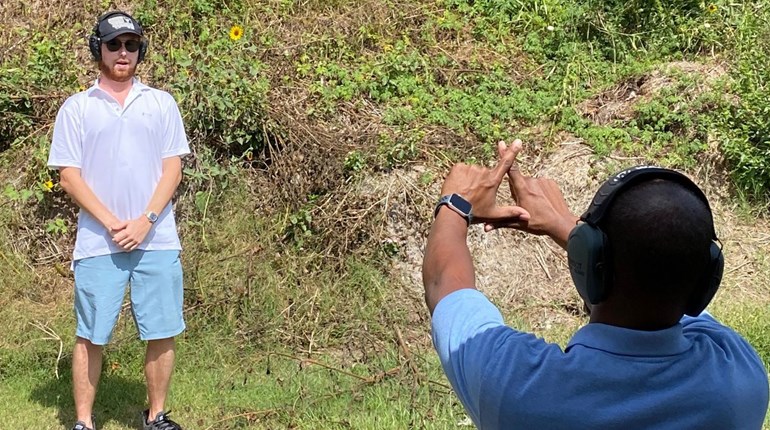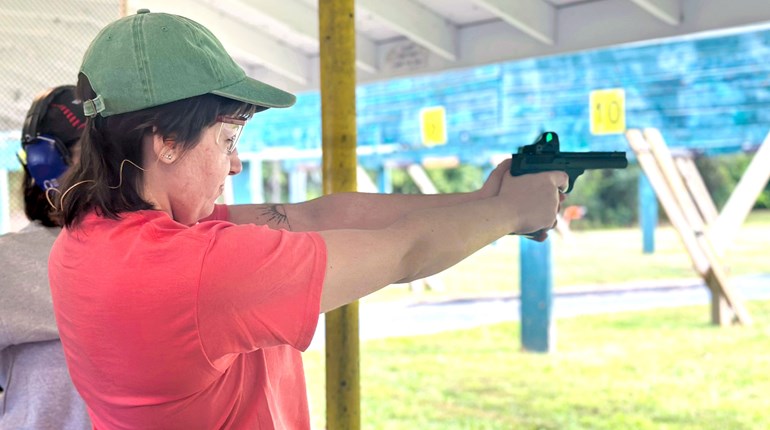
It is that time of year to start preparing for the dove, duck and goose season openers. This is collectively called the migratory bird season. Since the migratory bird seasons are the first to open, it is easy for hunters to forget what they need to do to stay legal. After all, it has been more than eight months since many hunters held a shotgun.
There are a lot of essentials to prepare for the opening days of migratory bird season. There is more to do than purchasing a hunting license: reviewing current laws and regulation changes; making sure your equipment is legal; and visiting the range to make sure that you can hit your target, so you stay within the daily bag limits.

Review Laws
One of the most important things to do when getting ready for the dove or waterfowl season openers is to review both state and federal laws. All migratory birds—doves, ducks, coots, mergansers and geese—are regulated state and federally. Check your state’s regulations as well as the U.S. Fish and Wildlife Service regulations.
If there is one thing that can ruin an entire hunting season, it is to run afoul of the law. Since migratory birds are regulated by two government entities, if you violate the law, not only could you receive a citation from the state in which you are hunting but also from the Department of the Interior (the federal agency that manages public lands and natural resources); the U.S. Fish and Wildlife is a bureau within the Department of the Interior.
Whether you inadvertently or intentionally violate any migratory bird laws, you are subject to state and/or federal criminal charges. Penalties could range from fines, jail time and/or the loss of hunting privileges. Additionally, since these violations are criminal, they will stay on your record.
There is another reason for reviewing the current migratory bird laws. On top of criminal penalties, violations of migratory bird laws could include civil restitution payments. In other words, you could be assessed state and/or federal penalties and a separate bill from the state you are hunting in for civil restitution.
Civil restitution is the replacement cost of that animal. The state takes into consideration how much it would cost to raise that animal, the cost that was lost to tourism (bird watchers), and the cost associated with the loss of that animal to the environment. For example, if you take three doves over your limit, you could be assessed three state and/or federal fines plus civil restitution for each of the doves you are over the limit.

Inspect Your Shotgun
Inspecting your shotgun is more than ensuring that it is clean and functioning properly. It means making sure that your shotgun is legal. If your shotgun was passed down to you through the generations, be sure it is not larger than a 10 gauge, and that it does not hold too many shotshells.
After making sure your shotgun is legal to hunt migratory birds with, you must make sure it is in safe operating condition.
One of the most common violations that game wardens encounter on the opening day is “hunting migratory birds with an illegal shotgun”—typically this means hunting with an unplugged shotgun. When hunting migratory birds, you must use a shotgun that is not capable of holding more than three (3) shotshells. Obviously, this is not an issue when using over-and-under or side-by-side shotguns because they can only hold two shells. The issue comes with pump or semi-automatic shotguns.
Pump and semi-automatic shotguns must be “plugged” so they can only hold three shotshells. This means the tubular magazine can only be capable of holding two shotshells in the magazine and one shotshell in the chamber. A shotgun plug is placed inside the tubular magazine to restrict it, so it is only capable of holding two shells. It is still a violation even if you are only putting two shotshells in your magazine and one in the chamber without a shotgun plug. The charge is using a shotgun “capable” of holding more than three shells regardless how many you are loading into it. A plug is required by law.
If you are hunting migratory birds, you need to ensure that you not only have a plug but have a proper plug. When you purchase a new shotgun, there is usually a plug in the box that must be installed. There are also universal plugs that can be purchased and cut to fit your specific make and model of shotgun. Regardless of whether it came with your brand-new shotgun or if you purchased a universal one, it is important to check your plug. Make sure the plug restricts a third, 2¾" shotshell from being inserted into the tubular magazine.
It does not matter if you only hunt with 3" shotshells and do not have any 2¾" shells on your person. In many shotguns, if you measure your plug to restrict a third 3" shotshell, you can actually insert three 2¾" shotshells inside the tubular magazine. Always check your shotgun’s tubular magazine using 2¾" shotshells to make sure your tubular magazine only accepts two, so you remain legal.

Hit the Range
The best way of filling your daily limit of migratory birds is to hit them! To be successful in the field during migratory bird season, visit the shooting range frequently well ahead of time, before hunting season. We all get a little rusty during the off-season. Instead of “knocking” the rust off on opening day, hone your skills before the season opener. Failing to hit the range is not only the culprit of missed birds, but it can also lead to an increased amount of wounding loss, which can quickly lead to being over your limit. Your daily bag limit is not only what you have in-hand in your bag, but it also includes the game birds you cannot recover. Game wardens are known to be watching hunters from afar and counting the birds you hit but do not immediately drop. He or she can determine if it was a mortal hit and include in your daily bag limit, even if you are unable to retrieve it. This is especially true if the game warden searches the area and finds wounded or dead birds.
A common occurrence is someone hunting doves over a field that has not been mowed and has high grass or crops. This can make it almost impossible to find every bird. If you do not count that “lost” bird in your daily bag limit and continue hunting until you have more than the limit, you will be issued a ticket for being over the limit. For example, if you have your daily limit of 15 doves in the bag, but the game warden watched you drop 18 birds, he or she can determine that you are over the limit by 3 birds. Even though they are “lost,” they are still counted in your bag. By law, every hunter is expected to make an effort to recover all downed game animals.
Hitting the range is also a good way of checking to make sure your shotgun is safe but also operating properly. You do not want to discover on the morning of the season opener that your pump shotgun has a bad extractor or that your semi-automatic shotgun has gas seal leak. It is never a good idea or a good time to become an amateur gunsmith in a duck blind at sunrise while the birds are landing in your decoy spread.
Migratory bird hunters are some of the most dedicated hunters. This is especially true for duck hunters. It is important that every hunter, regardless of whether they hunt migratory birds, large game animals, or those who exclusively hunt squirrels and rabbit, knows the laws and that their equipment is up to standards.














































